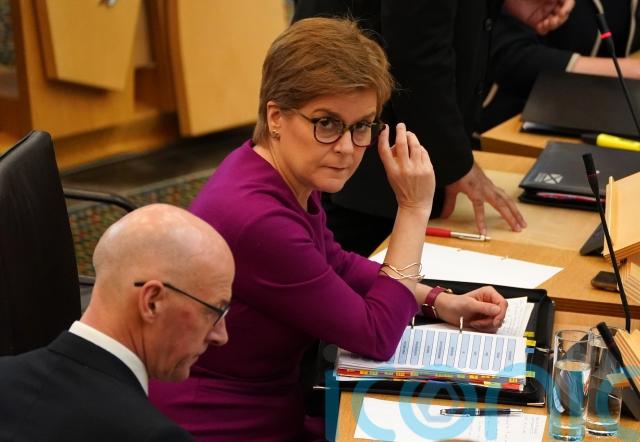
Emergency legislation which would freeze rents and ban evictions until April will be debated in Holyrood on Tuesday.
The Cost of Living (Tenant Protection) (Scotland) Bill was announced as part of the Programme for Government last month in response to the cost-of-living crisis.
If MSPs vote in favour of treating the Bill as emergency legislation – which is highly likely given the agreement between the SNP and the Scottish Greens in Parliament – an expedited process will see the first stage take place on Tuesday, the second on Wednesday and a final vote on Thursday.
The legislation was introduced on Monday, capping rent rises at 0% as of September 6, meaning any notice of rent increase after that date is “of no effect”, and giving ministers the power to extend the provisions of the Bill twice, until the end of September next year and March 2024.

The Bill will cover the private and social rented sector, as well as student accommodation.
If the legislation is passed by MSPs, evictions in most circumstances will be halted.
Landlords will be able to begin eviction proceedings against tenants, but they cannot be removed from the property until the end of the restrictions.
But the Bill allows for landlords to evict tenants if they plan to live in or sell the property because of “financial hardship”, or because of substantial rent arrears – described as being at least six months of rent.
However, eviction because of rent arrears must be cleared by a court or tribunal before it can be actioned.
The First-tier Tribunal – the primary body dealing with disputes over land and property in Scotland – would also have to find that a landlord was suffering financial hardship that the sale of the property was intended to ease.
Criminal and anti-social behaviour would also not be covered by eviction protections in the Bill.
Holyrood’s Local Government, Housing and Planning Committee will take evidence from interested parties and hear from Tenants’ Rights Minister Patrick Harvie on Tuesday morning.
Speaking after the introduction of the Bill, the minister said: “The cost-of-living crisis is an emergency situation demanding an emergency response.
“Even as energy, food bills and other day-to-day basics become more expensive, today’s legislation freezing rents and protecting tenants from eviction will give tenants stability in their homes and confidence about their housing costs.
“People who rent their homes are more likely to live in poverty or be on low incomes than homeowners.
“As such they are particularly exposed to rising prices, and it is imperative that we bring in support for them urgently.
“We know that many landlords have been doing what they can to protect their tenants, but some tenants are being hit with large rent increases that are hard to justify.
“This legislation aims to protect all tenants from substantial increases, balancing the protections that are urgently needed for tenants with safeguards for those landlords who may also be impacted by the cost crisis.”
Ahead of the Bill being introduced, the Scottish Federation of Housing Associations (SFHA) said the freeze could mean their members would stop building affordable new homes, adding that the proposals have “serious, unintended consequences”.
The federation, which will be among those appearing before the committee on Tuesday, has also written to the First Minister urging her to reconsider the move.
Work by the SFHA suggests that seven of its members, who have not been named, estimate they would collectively lose more than £100 million over the next 30 years.
SFHA chief executive Sally Thomas said: “We understand and share the intention to help people who are facing real poverty and desperate situations as a result of the cost-of-living crisis.
“Our members see first-hand the seriousness of the situation and are doing everything they can to support their tenants.
“However, the Scottish Government’s rent freeze proposals have serious, unintended consequences which must be considered.
“Housing associations are not-for-profit, charitable organisations whose rents are consistently around half the level charged in the private sector, without any government interventions.
“Housing associations are required by law to set social rents in consultation with tenants, providing them with certainty about their rents as part of a tenancy that is theirs for life.
“As a consequence of the power to set their own rents being removed, our members will find it difficult to consult with tenants as usual and cannot plan their vital work for next year.
“This removes power from tenants and reduces their say in their rents and services, effectively sidelining them from the process.”
Subscribe or register today to discover more from DonegalLive.ie
Buy the e-paper of the Donegal Democrat, Donegal People's Press, Donegal Post and Inish Times here for instant access to Donegal's premier news titles.
Keep up with the latest news from Donegal with our daily newsletter featuring the most important stories of the day delivered to your inbox every evening at 5pm.